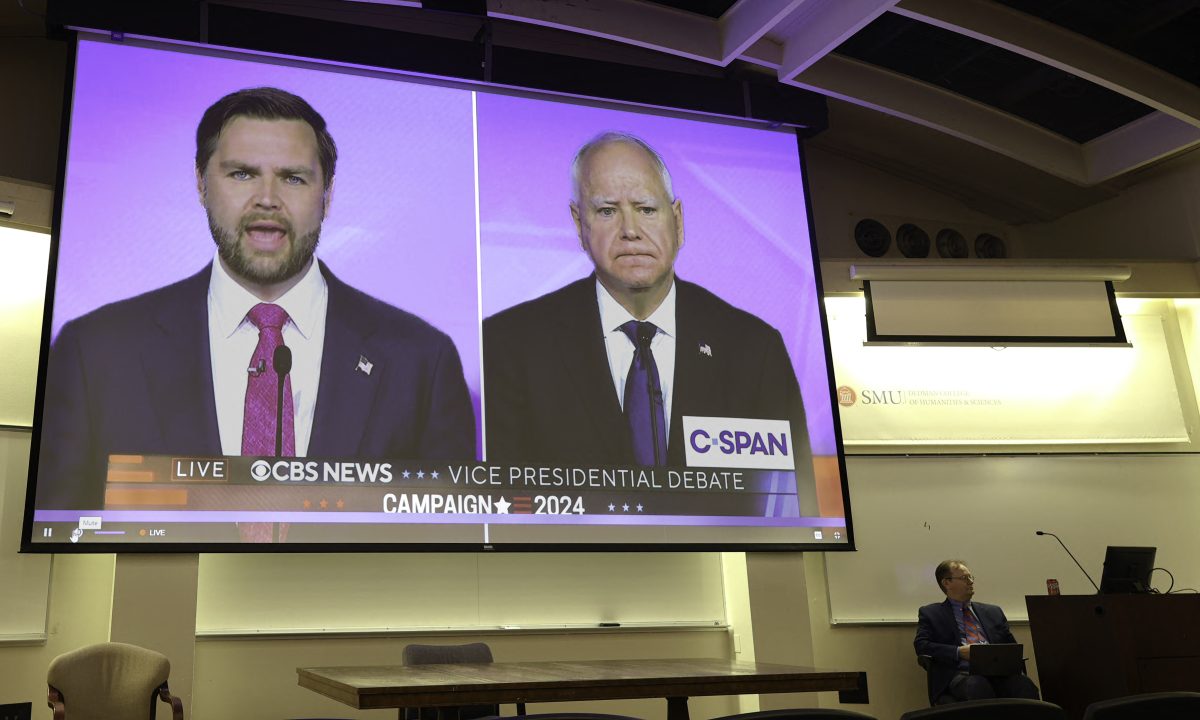At the request of the Archbishop Barsamian, Chief Bishop of the Eastern Diocese of the Armenian Church of America, SMU pulled its sponsorship from the arguably Turkish-favoring “International Conference on Turkish-Armenian Dialogue.”
“We understand SMU’s concern. We are not sad about their withdrawal and we share in their concern,” said Abdullah Kumas of the Turkish Student Association.
Last Saturday the TSA held the event in the Umphrey Lee Ballroom despite academic disapproval of the event’s scope and organization.
Kumas thought the panel was informative and unbiased.
“The conference did not confirm or deny whether or not genocide took place,” said Kumas. “Many Armenians left their phone numbers and wanted dialogue with the Raindrop Foundation. They expressed much gratitude for the event.”
However, Archbishop Barsamian and other scholars viewed the event as a sounding board for Turkish scholars and religious leaders to deny the Armenian genocide. Archbishop Barsamian called it a “historically unjustified and morally objectionable effort to call into question the alleged Armenian Genocide and derail efforts by the U.S. government to recognize this crime against humanity.”
Many scholars believe that Turkish organizations organized the dialogue in response to the Dallas community’s recognition of the “Armenian Genocide.” In 2005, Dallas Mayor Laura Miller made a proclamation recognizing the 90th anniversary of the genocide.
According to Barsamian, “I have been repeatedly reminded of how the timing of the event, and the rush to have it held so quickly with it being finalized only a week before it was held.”
“This coincides significantly with the United States Congress’ step towards considering a new, non-binding resolution concerning the Armenian Genocide and other resolutions condeming the assassination of Hrant Dink and Turkey’s oppression of journalist freedom.”
Kumas thinks Armenian scholars misunderstood the event as a dialogue on genocide when the event sought to start dialogue between Turkish and Armenian scholars.
“I know the organization committee invited 14 to 15 Armenian scholars. I know some of them did not come or declined because they misunderstood the conference as one pertaining to genocide,” he said.
Of 12 panelists in the dialogue, only one Armenian, Armenian Patriarch of Istanbul, His Beatitude Mesrob II Mutafyan, was invited to participate in the dialogue.
Archbishop Barsamian argued that Article 301 of Turkish law hampered the Patriarch, who resides in the capital of Turkey, from expressing his true thoughts and concerns. Article 301 of Turkish law makes it a crime to “denigrate Turkishness.” Violators have often faced heavy fines, imprisonment and assassination attempts by Turkish nationalists.
“The Armenians in the audience were very grateful that the Armenian Patriarch was there. He was a very moving speaker,” said Kumas.
Affirming what some call the Armenian Genocide has proven a contentious issue that has prompted scores of assassinations of scholars throughout the world. In January, internationally known journalist and peace-award winner Hrant Dink was assassinated for addressing the issue of the Armenian Genocide in his Agos newspaper.
The debate has been over whether to define the death of 1.5 million Armenian Christians from 1915 to 1918 as “genocide” during the government of the Young Turks in the Ottoman Empire.
A number of Western academics in the field of Ottoman history, including scholars from Princeton, universities in France, Columbia, UCLA, University of Massachussets, University of London and Central European University have expressed doubts as to the genocidal character of the events.
“Many people believe that the Russians used the Armenian cause to get to the Mediterranean. Thousands died on both sides in the relocation. We are all very sorry … [but] I do not believe that the event was genocide,” said Kumas.
The International Association of Genocide Scholars, the leading academic association of professionals in the field of genocide studies, has repeatedly affirmed the historical truth of the Armenian Genocide and noted that such acknowledgement by governments and institutions is essential to confront the ongoing cycles of genocide today.
Archbishop Barsamian said he remains ready to engage in authentic dialogue.
“I look forward to working with SMU, its student groups and others of good will to organize a truly balanced panel capable of discussing the Armenian Genocide and the future of the Armenian-Turkish relations,” he said.








